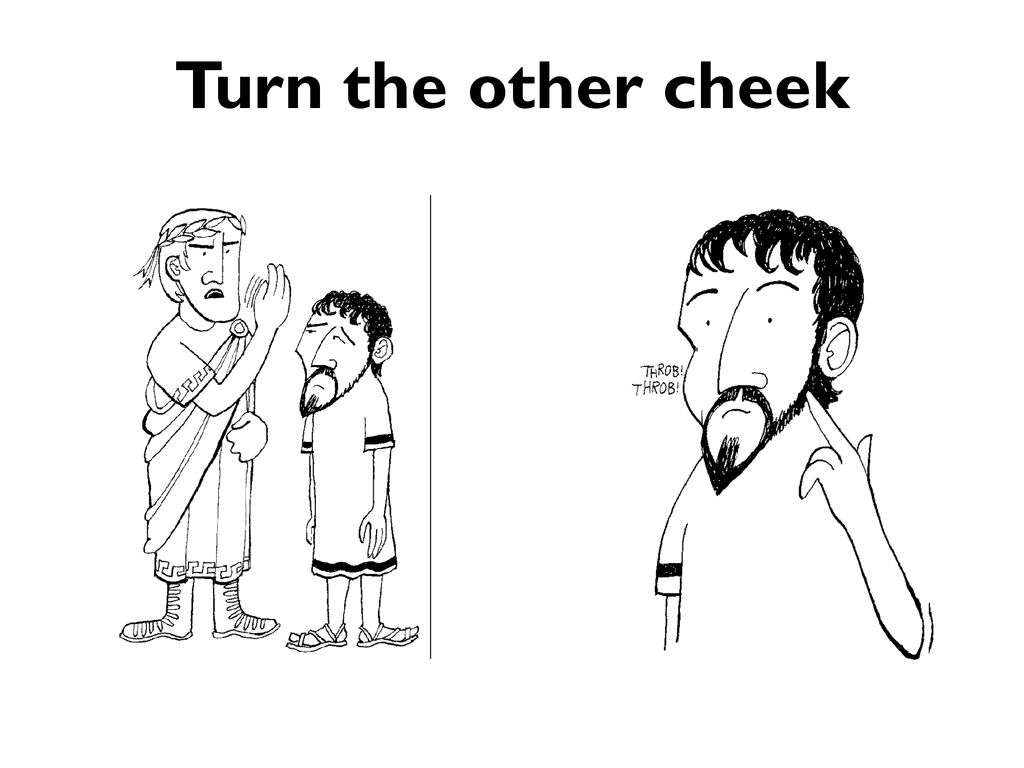Physical Address
304 North Cardinal St.
Dorchester Center, MA 02124
Physical Address
304 North Cardinal St.
Dorchester Center, MA 02124
With Michael Walker
With Michael Walker

A message to Believers….

Let’s keep it all the way real. In 2025, if someone walks up and slaps you, someone’s getting clapped. That’s the street response. That’s the instinct. But Jesus wasn’t giving a lesson in being a pushover—He was dropping a code of power that doesn’t stoop to ego games.
In Matthew 5:39, Jesus says, “But I say to you, do not show opposition against an evil person; but whoever slaps you on your right cheek, turn the other toward him also.”
Now at surface level, that sounds like, “Take it and like it.” But let’s not be lazy with Scripture. Jesus wasn’t talking about taking beatings for sport. He was talking about insults, humiliation, and domination—not physical assault meant to knock you out, but social jabs meant to put you down.
Back then, a slap on the right cheek was a backhanded slap. That was a calculated move of disrespect. Masters slapped slaves that way. Pharisees shamed peasants that way. It wasn’t about inflicting damage. It was about asserting superiority.
Let’s be even more clear: the Pharisees and slave owners didn’t just walk around slapping people in public for no reason. These weren’t brawlers looking to throw hands. These were men who already held control—over slaves, over the poor, over the marginalized. They slapped people they already had power over. It was a move of humiliation, not provocation. They weren’t trying to start a fight—they were trying to remind you that you had no fight in you.
Because let’s be honest: ain’t nobody in their right mind about to let you slap them—unless you already own them. You’re not walking up into another land and backhanding somebody with influence. You’d get ran through with the tip of a sword. These slaps were always targeted downward. They were weapons of class, not combat.
So when Jesus says “turn the other cheek,” He’s not telling you to let someone stomp you out. He’s saying:
“When someone tries to humiliate you in a system that already has its boot on your neck—don’t flinch, don’t cower, don’t retaliate. Stand your ground. Reclaim your worth.”
Because the truth is: cowering gives them power.
And swinging back gives them control.
But standing your ground? Looking them dead in the eye like, “Foo, is you crazy? You must’ve lost your rabid mind?”
That is a power move.
You’re not afraid. You’re not enraged. You’re unmoved.
You didn’t lower yourself to their level, and you didn’t shrink back in shame. You just stood tall and let their petty little slap echo into silence.
That’s the kind of meekness Jesus meant. Not weakness. Meekness: power under perfect control.
Even in Scripture, Jesus didn’t always stick around for foolishness. John 8:59 tells us He dipped when they tried to stone Him. He didn’t say, “Stone me, then I’ll turn the other side of my skull.” He walked away.
Sometimes turning the other cheek means disengaging.
Sometimes it means dodging the slap.
Sometimes it means giving them a look that says, “You’re not worth my reaction.”
And that, right there, is spiritual dominance.
Because when you let someone bait you into a fight, they win twice: once with the slap, and again with your pride. But when you refuse to give them your dignity, they leave with nothing.
This isn’t about pacifism. It’s about mastery.
The real fight isn’t with their hand.
The real fight is with your own ego.
So the next time someone disrespects you—in word, in gesture, in front of a crowd—you don’t need to clap back or bow down. Just stand there. Let the silence slap harder than they ever could.
You were slapped. But you weren’t shaken.